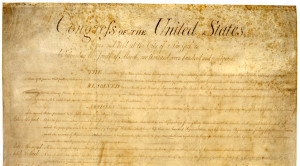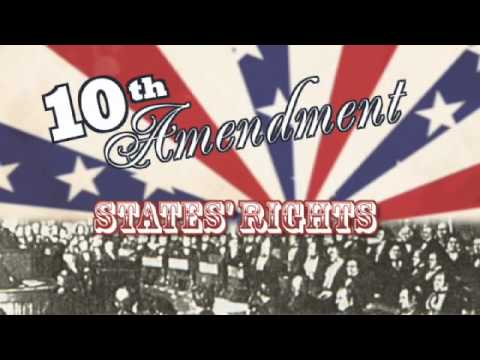.
Significance: All humans have God-given inalienable rights, which the government has a duty to protect. The government serves the people; the people do not serve the government.

After America won its independence from England, the struggle to craft a legal and philosophical architecture for the new nation resulted in the approved draft for the U.S. Constitution (1787). But that draft produced another fiery debate among the Founding Fathers: whether the rights of the people needed to be spelled out, and ratified as law – or whether, because the Constitution so strictly limited the powers of government, whether such a supplemental document was even necessary. Others felt that the approved draft of the Constitution gave a disproportionate amount of power to the federal government, and that this power, unchecked, could trample the natural rights of the states, and the people, unless the document also contained language to prevent this from happening.
Ultimately, it became clear that the Constitution could not be ratified by the states unless the Founders inserted into it a Bill of Rights – a final, full articulation of the core freedoms upon which the new government would not be allowed to tread.
Read the text of the Bill of Rights here.
Learn more about the creation of, and debates over the Bill of Rights at:
The National Archives: The Bill of Rights
Teaching American History: The Bill of Rights
Watch this 15:00 video by the National Constitution Center about the development and significance of the Bill of Rights:
Tragically, we have allowed our school system to whitewash out of our collective consciousness the Bill of Rights, and along with myriad cultural influences, to replace it with an array of fundamental misconceptions.
.
.
.
.

